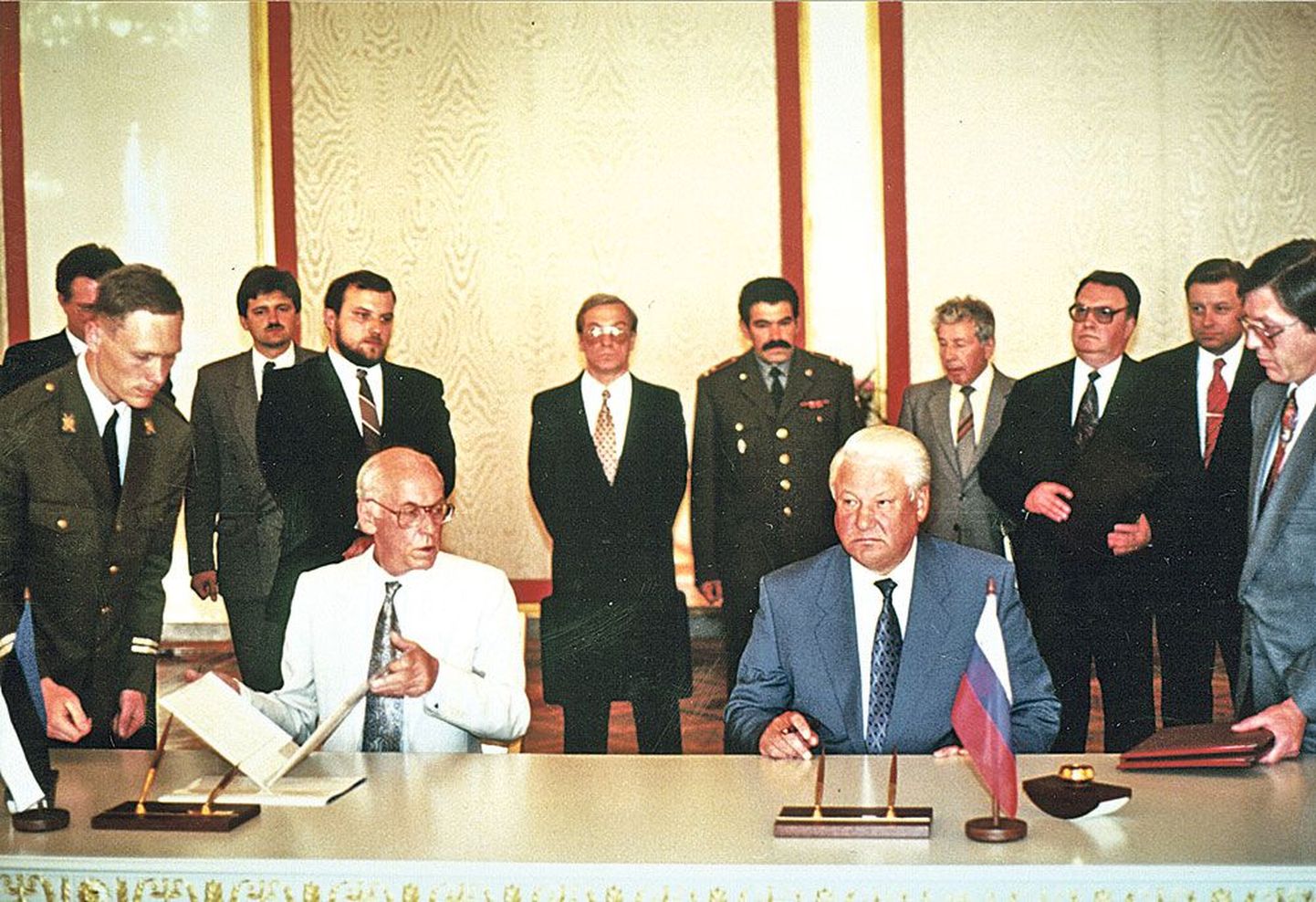According to Mr Meri, at times it was more like bargaining at a bazaar, in Bukhara – where he’d bought him a hookah... but a deal was reached.
Mr Yeltsin sent the officials to formulate the documents while he continued with the bottle. As Russian foreign minister entered, after a while, to report on how they were doing, Mr Yeltsin poured him a tall glass of vodka, commanded it to be downed, and complained at the officials taking so long – behold how fast a pair of Presidents can work stuff out.
Talks entered their fourth hour and Mr Yeltsin was showing obvious signs of fatigue. A banquet followed, and that was a trial. Now, it was Mr Meri who did most of the talking, interpreting what Mr Yeltsin had said. Finally, all was settled and Mr Meri and Mr Yeltsin signed the agreement.
Actually, it was one treaty and one agreement that were signed. The third treaty, regarding removing troops from Paldiski, had to wait a couple of more days. Because of that, a part of the Estonian delegation had to stay behind, in Moscow. What they did sign were the treaty on removing Russian troops, and the agreement regarding military pensioners. Craftily, Mr Meri had inserted into both the clause that in case of disagreements, the Estonian language version of the text would be guided by. The version, thus, which we were yet to compile when back in Tallinn...
